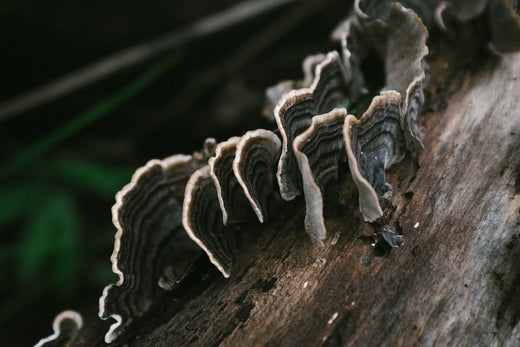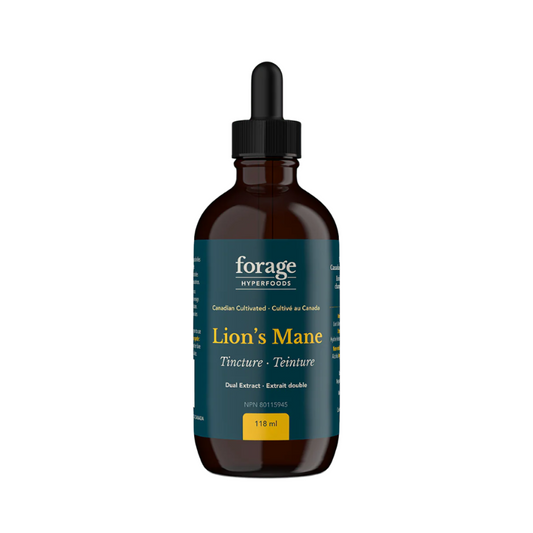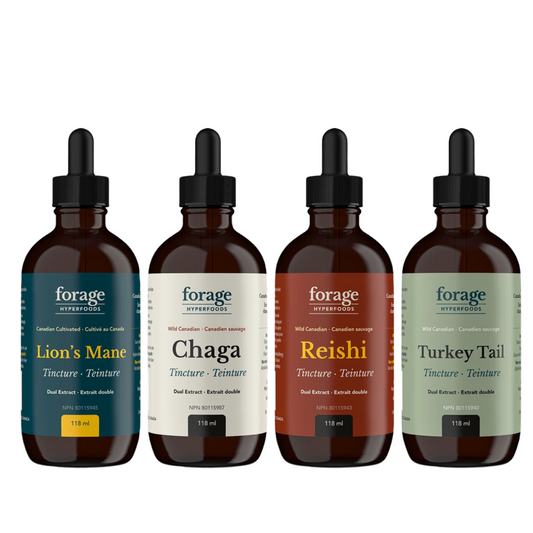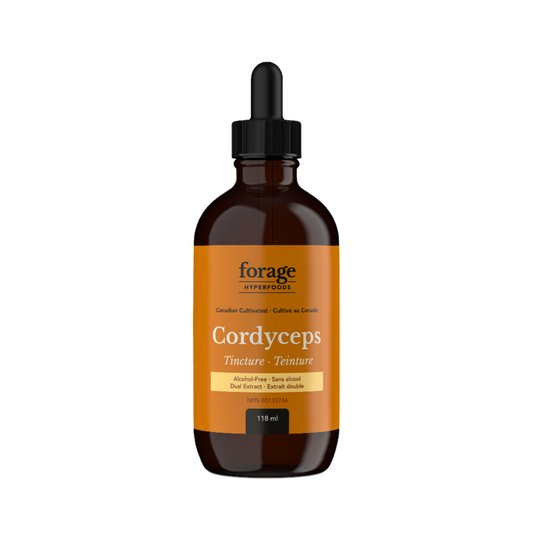
The Top Health Benefits of Turkey Tail Mushroom
Share
Turkey tail mushroom is a multicolored fungus that gets its name from its unique shape and color, which resembles the feathers on a turkey’s tail. Also known as Trametes versicolor or Coriolus versicolor, these mushrooms have been used in Eastern medicine for thousands of years to treat a variety of health conditions and concerns. Western medicine has caught on to these benefits over the last few decades as numerous clinical trials have demonstrated the positive effect of this medicinal mushroom. In this article, we’ll be exploring the benefits of turkey tail that you need to know about.
Here are the top health benefits of Turkey Tail Mushrooms
Rich in antioxidants
In response to pollutants and stress, our bodies produce free radicals, which are unstable molecules that can damage cells and DNA in a process called oxidation. Turkey tail is packed with antioxidants, including more than 35 phenols and powerful flavonoid antioxidants like quercetin and baicalein. Phenol and flavonoid antioxidants promote health by reducing damage caused by oxidative stress. This is very valuable, as oxidative stress can increase the risk of health conditions including certain cancers and heart disease.
Offers immune support
In addition to antioxidants, turkey tail is brimming with polysaccharopeptide (a type of protein-bound carbohydrate), including polysaccharide K (PSK) and polysaccharide peptide (PSP). Both PSK and PSP have powerful immune-boosting properties. They promote a strong immune system by activating and inhibiting specific types of immune cells, as well as suppressing inflammation.
Supports gut health
Maintaining a healthy balance of bacteria in your gut is very important for many aspects of health. It plays a critical role in immune health, mental health, and the absorption of nutrients. A healthy gut also communicates with the brain through nerves and hormones, which helps maintain strong overall health.
Turkey tail contains prebiotics, which help nourish the healthy bacteria in your gut. This may positively impact the balance of bacteria in your gut by enhancing the growth of beneficial bacteria and suppressing the growth of harmful bacteria.
May help combat cancer
Research has shown that turkey tail may have antitumor properties, thought to be related to its immune-boosting effects. One test-tube study demonstrated that PSK, a polysaccharopeptide found in turkey tail, inhibited the growth and spread of human colon cancer cells. Additionally, a certain type of polysaccharide found in turkey tail called Coriolus versicolor glucan (CVG) has been shown to suppress tumors in mice. These two studies aren’t flukes either—several other studies have been conducted with similar results.
May enhance certain cancer treatments
While the research surrounding turkey tail’s potential ability to combat cancer is impressive, what’s even more notable is research showing its effect when combined with more traditional cancer treatments. A review of 13 studies found that patients given 1 to 3.6 grams of turkey tail mushroom per day, along with conventional treatment, experienced a 9 percent reduction in 5-year mortality compared to those who had chemotherapy alone. The improved outcomes in those taking turkey tail may be due to a bolstering of the immune system, which is typically weakened as a side effect of chemotherapy.
Where can turkey tail be found?
Turkey tail mushrooms are indigenous to all continents, except Antarctica, and are found in most forests around the world. As a saprophytic mushroom, turkey tail helps break down trees that have fallen in the forest. As such, they tend to grow in shelf-life brackets on dead wood on the forest floor and are typically harvested in the winter.
If you want to try your hand at mushroom foraging, seek out the guidance of more experienced foragers and practice caution when harvesting and consuming any wild mushroom.
Find a trusted source for your turkey tail
For those not looking to romp through the forest to acquire turkey tail, you can purchase it online in supplement form from a reputable supplier. It’s important to understand, however, that not all turkey tail supplements are created equal.
Choose a company whose turkey tail is sustainably wild harvested, carefully extracted, and tested for contaminants such as heavy metals, pesticides, microbes, and gluten. Always check the ingredient label of a turkey tail supplement before purchasing it. If it lists any ingredients like “mycelium on grain” or other fillers, it’s best to avoid it. Instead, seek a product that uses fruiting bodies, the part of the mushroom with the most healing compounds.
The bottom line
Turkey tail is a powerful medicinal mushroom that’s backed up by a tremendous amount of research. Turkey tail is best known for its immune-boosting properties, which may aid in fighting cancer, enhancing cancer treatment, and reducing inflammation. If you’re looking to improve your immunity, gut health, and general well-being, adding turkey tail to your routine is a great place to start.



